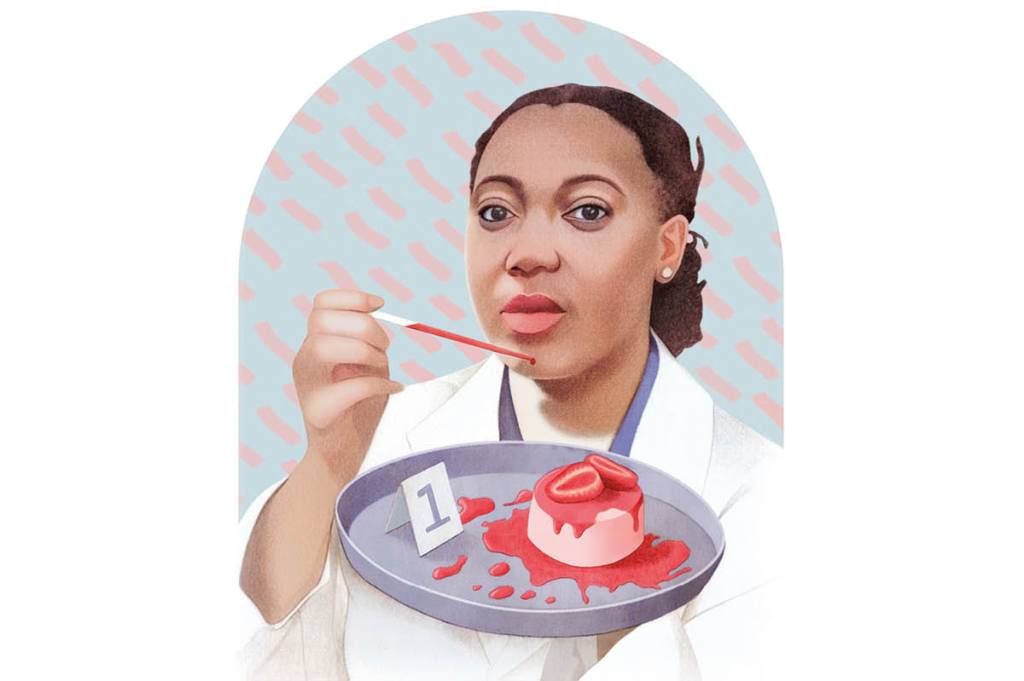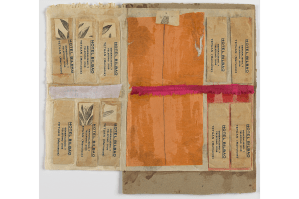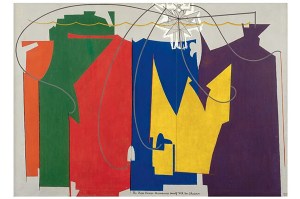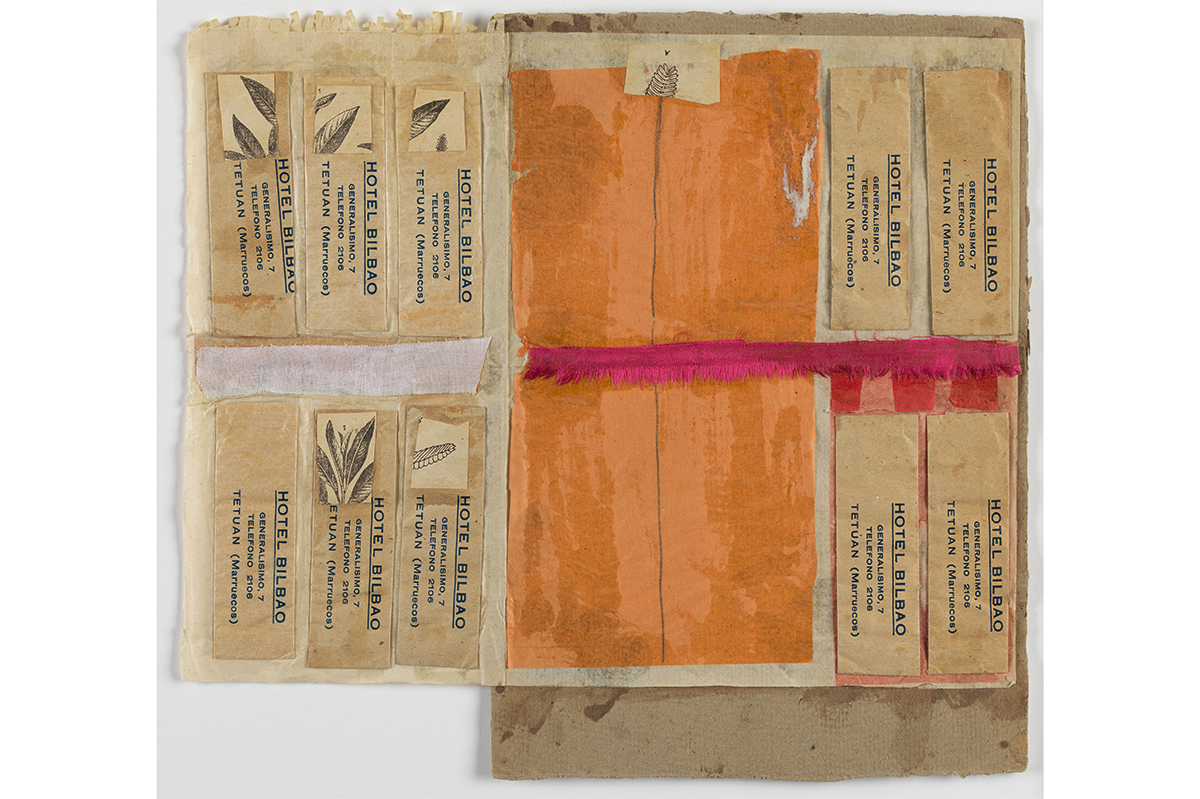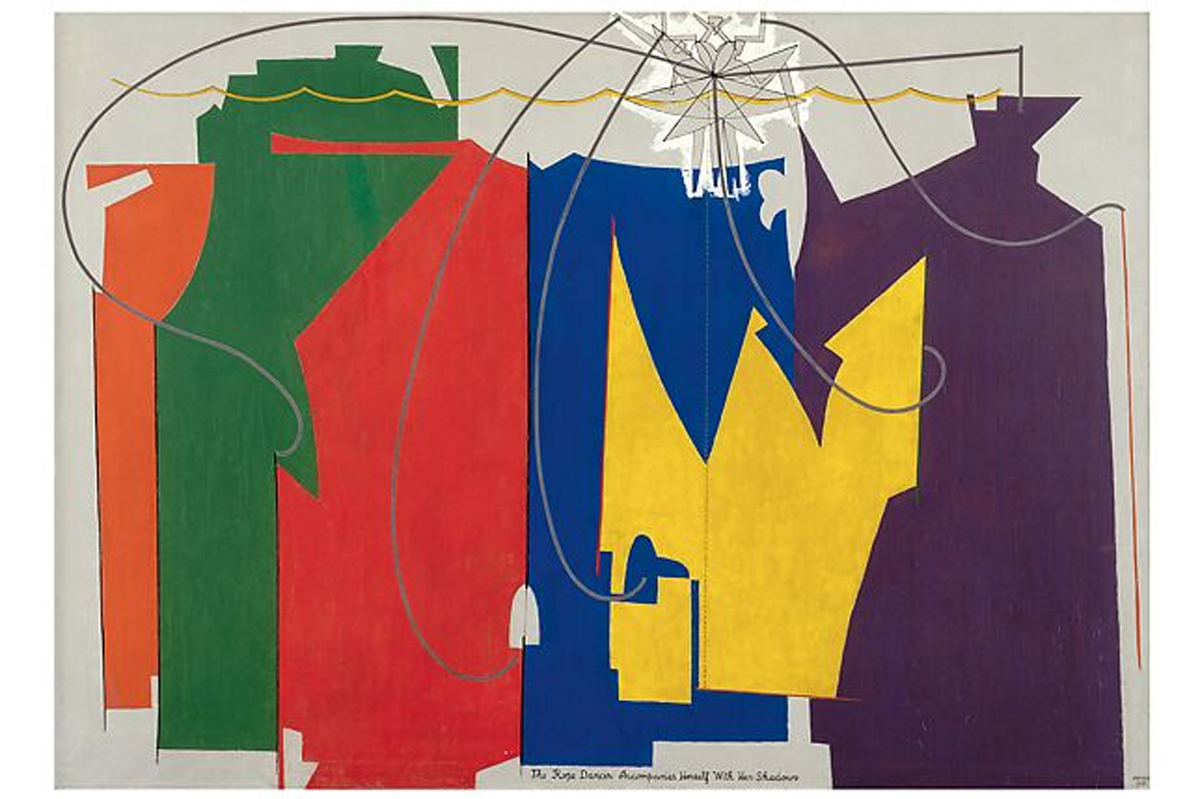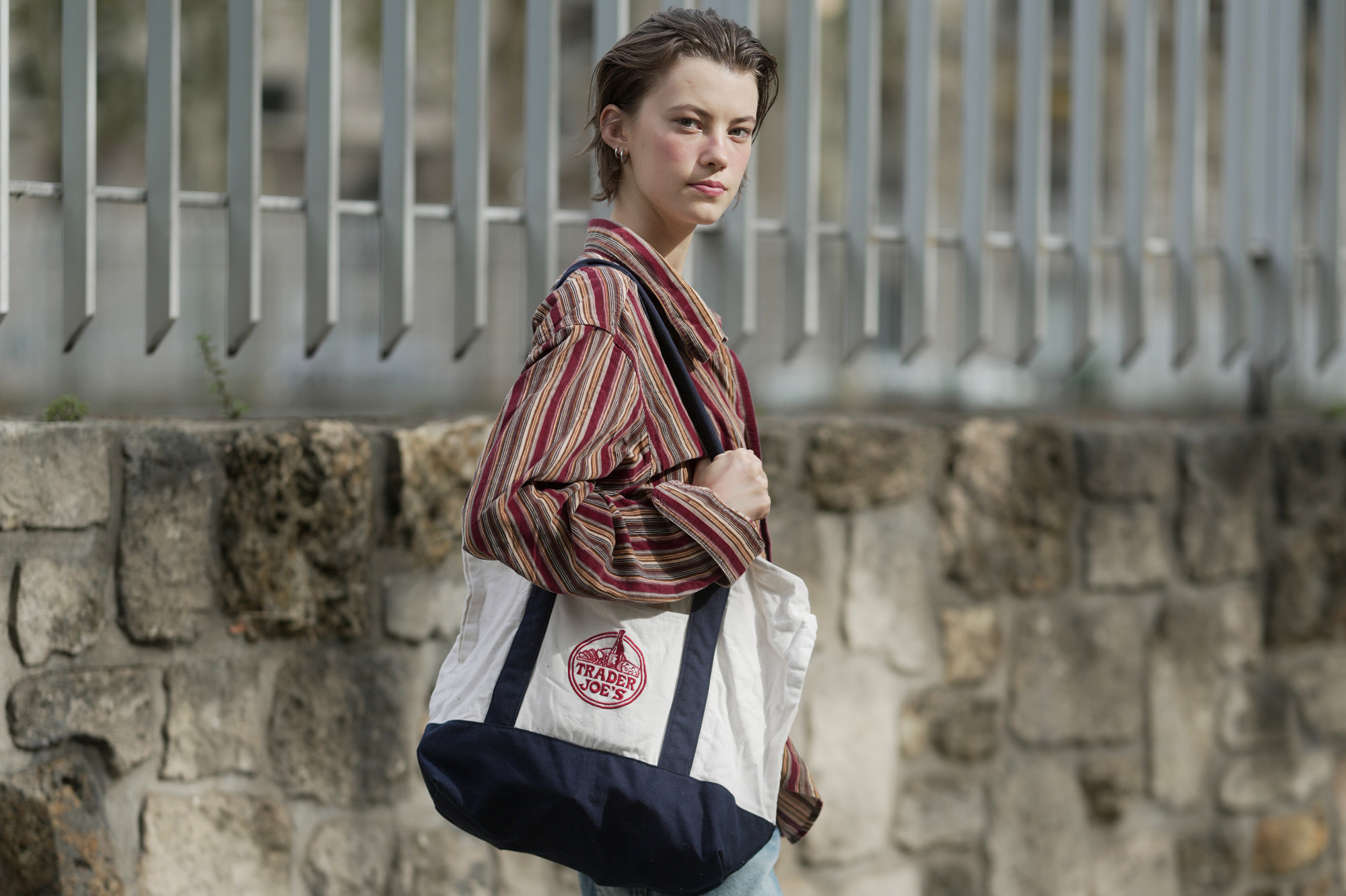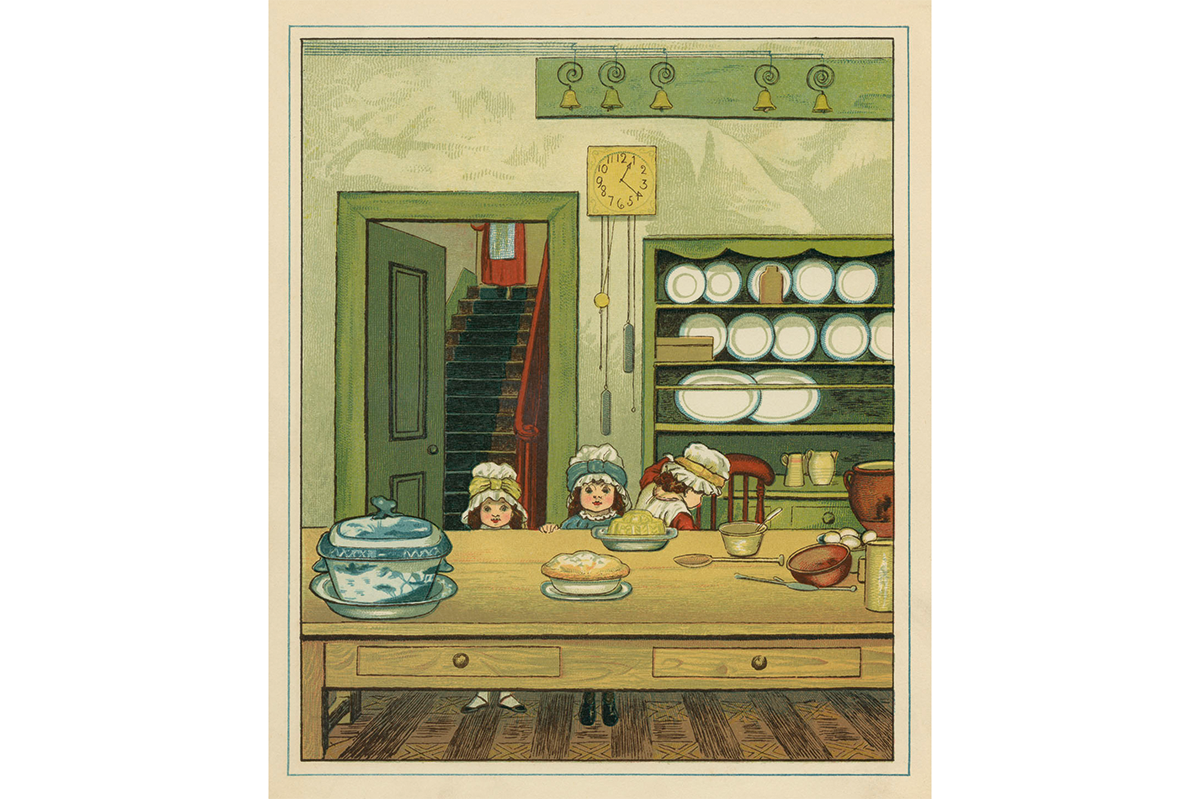“I was really fascinated with the process, the science behind everything,” recalls Camari Mick, the now twenty-nine-year-old star pastry chef, who studied anatomy in high school. “I love true crime: I was very into Snapped and crime junkie podcasts.”
When she approached her parents, however, they asked her to reconsider. “My dad looked at my mom, looked at me, looked back at my mom and looked at me, and said: ‘Are you sure?’”
At the time, Mick was running a mini-business from home, making baked goods to sell to friends, teachers and neighbors. “You’re doing really well, you clearly love being an entrepreneur, why don’t you go into this avenue?” her father asked her.
His advice paid off. Mick enrolled to study pastry arts at the Restaurant School in Philadelphia, before earning her stripes at the likes of Le Bernardin in Manhattan. In 2020, she joined the Michelin-starred Musket Room as head pastry chef and this year was a semifinalist for the James Beard Awards’ Outstanding Pastry Chef.
Her latest venture — spearheading the bakery at Raf’s, the French-Italian restaurant which opened in Nolita in April — is her most exciting. Hailing from the team behind the Musket Room, Raf’s occupies the space of former New York staple the Parisi Bakery. Its 1903 wood-fired coal oven is still in use.
On a recent Friday morning, I met Mick at the bakery. Polished white tiles and rectangular mirrors line the wall above cozy leather banquettes and round café tables; patrons can watch the barista at work at the handsome marble bar. The French-style patisserie, while only open a few weeks, is already a hit. “We have so many regulars from all these apartments,” says Mick. “[Some tell me] ‘I had dreams about the almond croissant’ — ‘I need it!’”
Dressed in her chef’s whites, with her braided hair tied back, Mick is bubbly and warm with an infectious laugh. She pushes a sample of goodies, piled high on a silver cake platter, toward me, urging me to try them. Balancing on top is a perfectly flaky croissant and nestled in different nooks sit a handful of mini hazelnut cookies, a Piedmontese specialty known as baci di dama or “lady’s kisses.”
It is the more experimental items that stand out, however. A candied-orange almond croissant — soaked in a “saline syrup,” filled with almond frangipane and candied orange peel and covered with grated sweet Marcona almonds —is decadent. Then there’s the winningly complex ramp and fungi Danish. Cooked cremini mushrooms and ramps — a garlicky wild allium related to spring onions and leeks — are slathered across a crisp rectangular pastry with Gruyère cheese. Tiny pink curls of pickled ramp bottoms are sprinkled on top like confetti.
Mick was just twelve years old when she first started to bake, inspired by an urge to put something sweet on the table for her siblings and parents (her father, who owns a trucking business, is Jamaican, and her mother, a travel agent, is from Brooklyn).
It was during the pandemic, when the food industry was in turmoil, that Mick got her big break. Unemployed, bored and frustrated, she started baking donuts at her home in Bed-Stuy (she now lives in Harlem), before selling them on Instagram and delivering them to clients on her bike.
Mick’s donuts became a mini-sensation. “It was kicking off,” she laughs. “I was riding my bike everywhere, dropping them off, masked.”
Eventually, Nicole Vitagliano, who co-owns the Musket Room with her twin sister Jennifer, ordered a batch. An hour later, Mick received an email asking her to come in for an interview.
Mick was put in charge of the Musket Room’s pandemic-era all-day café, which operated from a vintage green and yellow 1962 Harvester truck. Her creations — a sweet potato bao bun, guava cream-cheese donuts — drew lines around the block. Joining a female-owned enterprise was new for Mick. “It was a breath of fresh air!” she exclaims. “This is the first restaurant that I’ve worked with a female owner, female chef… I find that working with women, not to say they don’t have egos, but we’re all a team, we really thrive off each other.”
Key for Mick is creating an environment that avoids the toxicity and verbal abuse prevalent in kitchens. She likes to do what she calls a “pastry town hall” with the six cooks she manages: once a week, they sit down together and she asks: “This is what I like to see, but what do you guys think? Tell me what we can do better.”
“We’re going to change the narrative,” she insists. “We’re going to be more inclusive, we’re going to have a zero-tolerance attitude toward any and everything [like] harassment, sexual or otherwise.” Mick, as a black pastry chef, says her mission is personal. “I really hope we start seeing more and more people who look like me in this field. Because it’s getting lonely!” she laughs.
Mick likes to use her heritage in her baking, building a dish around cornbread, say. Yet she is also open to exploring ingredients from other cultures. She is currently developing an ice cream for the Musket Room, made with huitlacoche, the corn-smut fungus that grows on ears of corn and is dubbed the Mexican truffle for its nutty, earthy flavor. Playing on corn as a cornerstone, the dish will include a smoked corn mousse, tortilla tuile, and black-cocoa-powder brownie, nodding toward the Aztec reverence for chocolate.
Mick’s Instagram bio reads: “I bake, I listen to murder.” The phrase seems to be incongruous with her effervescent, bright personality, her professional curiosity and, above all, her fluffy, sugared, magical creations. But baking and her abiding interest in forensic pathology are not that different: both involve precision, thinking outside the box and discipline.
“You have a theory, you test it out and then you keep retesting, retesting until you work it out,” she says, pausing to smile. “It gets very science-y and I find that to be fun.”
This article was originally published in The Spectator’s August 2023 World edition.



